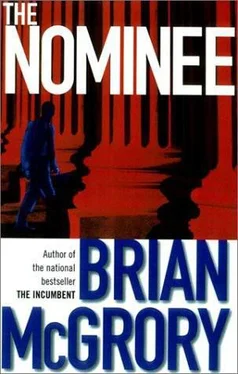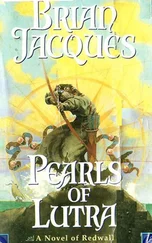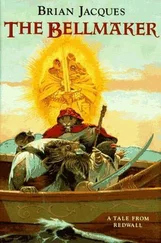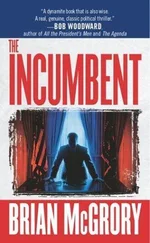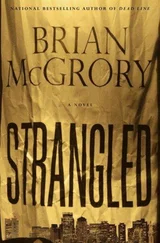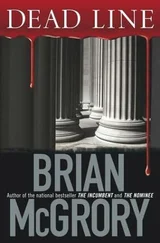Oh well. I took Baker out for a quick walk with promises of a longer romp that night — though probably not back to the North End basketball court. I had seen so many guns in the last twenty-four hours that I was starting to feel like Charlton Heston and didn’t need to tempt the presence of any more.
I hadn’t yet reported the shooting to the authorities because I had too much work to do in Boston and didn’t want to be detained any longer than necessary in Florida. I also didn’t want the Florida State Police to get out in front ofThe Boston Record quite yet on a story that could have considerable impact on my newspaper, assuming that my merry gunman was in some way connected to John Cutter’s death.
On the drive to work, I couldn’t help but think of how change was now encompassing, if not overwhelming me. Maybe this would be one of my last forays into the newsroom, because why would I want to stay and watch theRecord — myRecord — sold to a cost-cutting chain and gutted like a freshly caught tuna on a deep-sea fishing boat?
But what to be at this tender age. Being a reporter is like getting a Ph.D. in philosophy, meaning, it doesn’t really prepare you to do anything else, except, perhaps, public relations, but what right-thinking person would ever want to do that? Perhaps I should be a plumber, the problem being, I don’t like small places and don’t actually know anything about pipes. A fireman? I don’t like the heat. A carpenter? I don’t own a hammer and the only thing I know about a Phillips is that it’s the surname of a boarding school that would never have admitted me, and rest assured, they didn’t teach carpentry. I still held hope, not to mention trust, in Paul’s abilities that these would be purely hypothetical questions.
It was a little past fiveP.M. when, sitting in rush hour traffic, I caught a glimpse of the sun’s rays doing a little two-step across the massive windows of theRecord building, and I’ll confess here and now, with Paul’s warning of a possible sale still rattling around my brain, I wasn’t quite prepared for the flood of memories that this familiar, even mundane, sight so powerfully unleashed.
I thought of my first visit to the newspaper. I was eight years old. My father was aRecord pressman spending yet another weekend working another overtime shift in his dark green, ink-stained apron. I remember being entranced at the sight of the hulking machines whirling around in creation of that day’s paper — the sounds of the presses, the smell of the paper, the splotches of black ink everywhere you looked.
I thought of the lede — a newspaper word meaning the first paragraph of a story — to my first front-page story, headlined “Dare Jump Death” (“Two Quincy teenagers, acting on a dare from a small group of friends, jumped sixty feet to their deaths yesterday in the frigid waters of an abandoned granite quarry”). I thought of the crackle of gunfire at Congressional Country Club a couple of years ago that led to me breaking the biggest story of my life, not to mention one of my right ribs.
I knew I had one more good one to come, at least while the paper was under Cutter-Ellis control: the embellished record of Governor Lance Randolph — a story getting better by the moment as the nice radio announcer informed me that President Clayton Hutchins had officially nominated him that afternoon to be attorney general. I had already been researching the Randolph story out for a little more than a week, and rushed back from Florida, among other reasons, to work on it.
I found myself with a cross of conflicting emotions — short-term excitement over the Randolph story, long-term dread over what was about to happen to my newspaper, and a very pronounced apprehension at who out there was trying to kill me for reasons that I didn’t yet know. I was confused and a little bit disoriented. I looked forward to stepping inside the familiar environs of the newsroom at the critical deadline hour.
Pulling beyond the unmanned guard shack into the paper’s side parking lot, I saw a Boston Police cruiser idling at a horizontal angle, its overhead lights flashing and its headlights pulsing, blocking the way. This was a bad afternoon for a foreign dignitary to be visiting our editorial board. I thought, too much to do, too much at stake, to be worried about the overzealous whims of the Secret Service protecting the King of Guam, though wait a minute, isn’t Guam one of ours? Where the hell is Guam, anyway?
As I slowly approached the car, the young cop leaning on it gruffly waved me off and barked, “Turn around. This is off-limits.”
I rolled down my window, contemplating whether to explain to the gentleman that this was a private way, owned and operated by the good people ofThe Boston Record, and he’d be best to get the hell out of the way.
Instead, I said, “Afternoon, officer. I work here. I’m just trying to get through to the parking lot.”
“Did you hear me?” he said, his voice as sharp as a Swiss Army knife blade. “I said there’s no traffic beyond this point.”
I have already been blessed with a vital dislike, even disdain, for authority, and the idea of a rookie cop directing traffic at a newspaper was like a cat suddenly gaining entry to a mouse hole, not that I regard reporters as a bunch of mice, or even any other kind of rodent, but you get the picture.
“Did you hear me?” I asked. “I said I work here. Move your car out of my way.”
That got some of his precious synapses firing.
He replied, “Hey jerk-off, turn your damned car around and get out of my sight before you end up with cuffs on in the back of this cruiser. This is a crime scene.”
Finally, some information, even if unwittingly provided. I was in no position to press him further, and even in less of a position to get past him, so I quickly turned around, parked in the small front visitor’s lot and hustled up the three steps into the visitor’s entrance.
First thing I noticed was several men in trench coats huddled in one corner of the lobby with police radios blabbing and shrieking from their pockets. I asked the security guard, a longtime employee named Edgar, what the hell was going on.
“You haven’t heard?” he said, a look of panic crossing his gray features. “Jack, it’s Paul Ellis.”
“What about him?” I asked, the fear in my voice surprising even me.
Edgar simply shook his head in a mix of uncertainty and anguish. So I bolted around him, through a couple of sets of industrial double-doors and into the pressroom, where the mammoth presses were silently waiting for the next day’s run. I raced through the length of the room, roughly the size of half a football field, dodging some of the pressmen — old friends of my father’s — as they called out my name, and slammed through a metal door that led to the side parking lot.
Once outside, with the low afternoon sun hitting me square in the eyes, I saw something that spurred a wave of nausea from my stomach to my chest and almost brought me to my knees: a white van with spare blue letters that said, “State Medical Examiner.”
As I settled myself, my eyes focused on about a dozen or so men and women striding purposefully about, some carrying kits in their hands, others talking on radios and cellular telephones. Two younger men in jumpsuits stood beside an empty, rolling gurney, the purpose of which I wasn’t sure I wanted to know, but knew I had to learn. A helicopter swooped low over the nearby highway and hovered above an adjacent neighborhood.
I jogged toward the van, trying not to attract attention to myself, though I was sweating like a walrus.
“What do we have,” I asked one of the kids by the gurney, trying to sound casual.
He nodded absently toward a row ofRecord delivery trucks and replied, “Body’s over there. They’re photographing it now.”
Читать дальше
